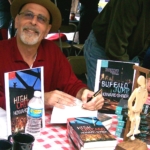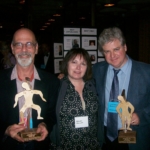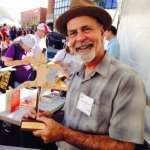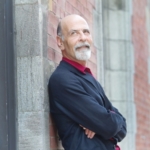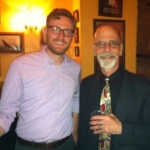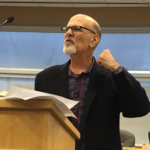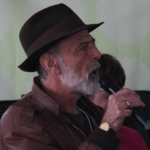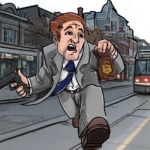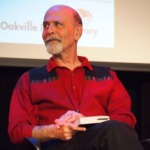Toronto PI Jonah Geller hasn’t played hockey for a while, but he is seeing a sports medicine physician who specializes in the after-effects of concussion. It wasn’t an errant hockey stick that laid him low, but a deliberately-wielded barbell, one of the hazards of his trade. But he should probably have followed Sidney Crosby’s example and taken some months off to recover. As it is, he is back in action far too soon and not at his best.
Nevertheless, when his elder brother Daniel the lawyer and his mother’s favourite son refers a worried couple to him, Jonah thinks this will be a low-key case that won’t overtax him. Ron and Sheila Fine are a middle-aged couple in suburban Toronto whose son David is a post-graduate resident in transplant surgery in Boston. A serious, studious, religious young man, he has been uncharacteristically missing for several weeks and his parents are understandably worried. Jonah has his own reasons for taking a jaundiced view of over-achieving elder brothers and assumes that David has simply burnt out and is probably taking a little rest, perhaps with a woman he wouldn’t bring home to mother.
So Jonah heads off to Boston along with his lesbian business partner, Jenn Raudsepp, who knows the city well. Within days, he is deep in the Boston Jewish community, where it rapidly becomes clear that David is not having a doctor’s little holiday but is running for his life, pursued by some extremely unpleasant Boston gangsters. In no time at all, Jenn has been snatched by the same gorillas, and Jonah calls on Dante Ryan, restauranteur and former hit man to come down from Toronto and help him get her back.
Jonah Geller is an attractive character in many ways. He is an unobservant Jew, an atheist in fact, who nevertheless is deeply attached to his Jewish identity. He once served in the Israeli army, where he lost his first love and killed his first man, he depends more on martial arts than on firepower, and he views his profession as a moral one, in the sense that it gives him the opportunity to discharge the obligation he learned in Hebrew school to repair the world, to leave it better than he found it.
But it’s getting a lot harder to do. Boston Cream is a darker book than the earlier two in the series. Despite his line of work, Jonah has always considered himself a non-violent man, one who merely responds defensively to the violence of others. Yet at the end, he sits and grimly contemplates the wreckage he’s been part of. As long as he stayed north of the border, the worst violence has been a fist or a kick; it’s when he ventures south to the United States, “where the stakes seem higher and guns abound,” that mayhem breaks out. Maybe it’s not him but the country. In future, he swears, he’ll stay home. Maybe that way, he can be both a private eye and a mensch.
Readers can only hope his resolve weakens. Shrier has found a brilliant solution to the problem that apparently confronts many Canadian crime writers. The received wisdom is that Americans do not want to read about Canada, except in the form of an idyllic little snow-bound village. They especially don’t want to read about Canadian cities, home to eighty percent of the population. By sending Jonah off to, variously, Buffalo, Chicago, and now Boston, Shrier manages to write a thoroughly Canadian novel situated in a convincingly realized American city. It would be a pity if his moral crisis keeps him out of Baltimore or Philadelphia, or even New York. On the other hand, it might be nice to see what Jonah can get up to in Toronto or Montreal. Whether he goes or stays, I’ll be certain to follow. — Yvonne Klein, Reviewing the Evidence


